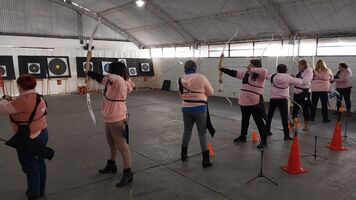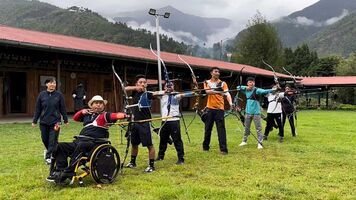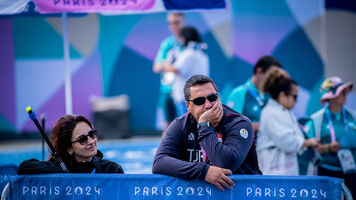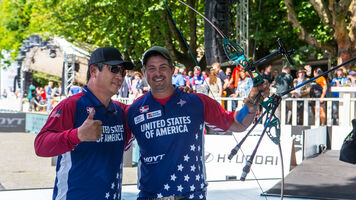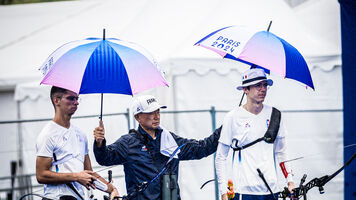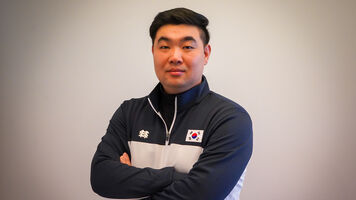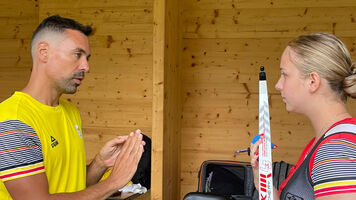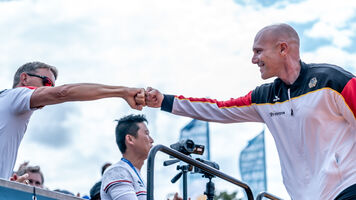Coach perspective: Training para athletes

The archers have quite rightly been the main focus of the World Archery Para Championships in Donaueschingen, Germany, but the coaches of each team play a vital part in preparing them for international competition and potential success.
Between preparation and competition, para archery provides the coaches of each nation a different proposition compared to that of their able-bodied counterparts.
However, there are a lot of similarities, and one of those spoke about by many of the coaches is the dedication and passion needed to succeed – and the desire to train each day to the maximum. For both able-bodied and para athletes, it’s a critical trait.
“You train people in para-archery just like you would anybody else. You look at their strengths and weaknesses and then you adapt,” USA coach Randi Smith explained.
On the subject of potentially finding new archers she said: “I would be looking at alignment and a passion for the sport. If they enjoy the sport and want to improve then there is no difference.”
There is, however, a certain amount of creativity needed within the training schedule. Because of the requirements of different impairments, challenges arise. Para athletes with one arm or, in Matt Stutzman’s case, for example, no arms, have to adapt to their approach to excel in archery.
While explaining his techinique, Matt delivered a poignant message: “If you persevere, you can overcome any obstacle.”
Australia’s athletes, who travelled to Donaueschingen without a coach, said they felt that coaching para archers requires a more flexible approach to basic technique.
“In terms of training there are not many differences, but more problems can occur when you coach an impaired athlete,” said Marek Steiner, competing in the recurve men’s open competition in Donaueschingen. For example, those shooting with one leg may find stability more of an issue, in particular when it’s windy.
“For para archers you have to be prepared to adapt the training every day if needed, as weather conditions can play a part for certain impairments.”
Across sports, athletes give up day jobs or other pursuits to find excellence.
But, for team managers, organising the support required for those athletes to spend their time effectively training is also a consideration.
“We need more resources because the majority cannot shoot or train on their own,” explained Mike Peart, head coach of the British Paralympic archery team. “Para athletes require full-time coaches, especially with the standard of the sport increasing every single year.”
The Great Britain team was successful at London 2012 and has one of the biggest squads at Donaueschingen 2015. It was important for the nation to build on the successes of the last Paralympic Games.
Mike concluded: “You have to train harder, adjust fine details and simply carry on improving, because the rest of the competitors will be doing similar. That’s the same in both able-bodied and para-athlete competitions.”


